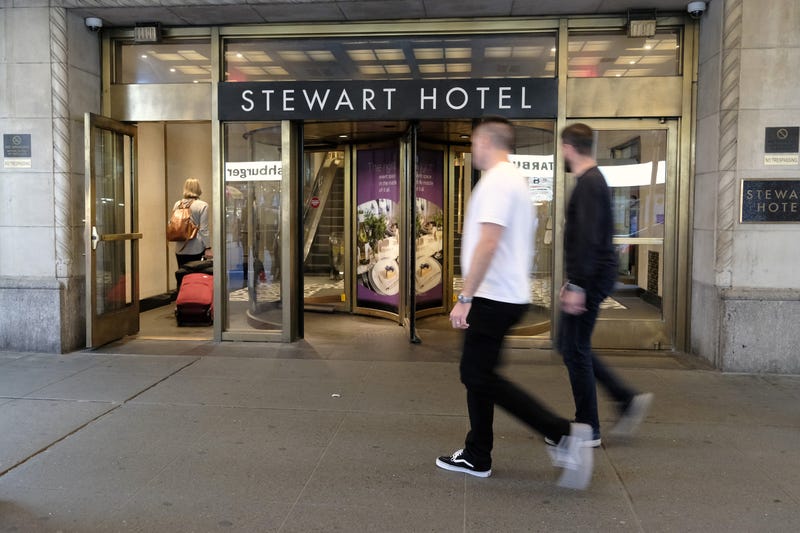
NEW YORK (BLOOMBERG) -- A contractor hired by New York City to provide shelter for thousands of migrants over the past two years improperly billed the city for vacant hotel rooms, security guards and other unnecessary services, according to an audit released Tuesday.
The audit found the contractor, DocGo Inc., billed the city $1.7 million for 9,874 vacant hotel rooms during a two-month period from May to June 2023, according to City Comptroller Brad Lander. The city also overpaid $2 million for security services and spent $6.3 million on other services for which the company couldn’t provide adequate documentation, the audit found. The city should consider trying to recover $11 million of the $13.8 million it paid DocGo during the two month period, the audit found.
“It really is atrocious mismanagement,” Lander said at a press conference Tuesday in which he criticized Mayor Eric Adams’ administration for its handling of the DocGo contract. “I’m really shocked at how little scrutiny there was.”
The audit was announced a week after Lander declared he would challenge Adams in the Democratic primary for mayor next year.
His audit comes about two years after New York first saw a surge in asylum seekers, a phenomenon that overwhelmed city shelters and strained the city’s financial resources. The Adams administration has opened more than 200 emergency shelters in hotels and other buildings, and spent more than $4.3 billion on services for the approximately 200,000 migrants that have arrived in the last two years. Budget officials anticipate that migrant-related costs will total more than $10 billion by July 2025.
Some elected officials began questioning the city’s ballooning costs as the crisis threatened to curtail other city spending, with the emergency, no-bid procurement processes used for migrant-related contracts drawing particular scrutiny. A New York Times report examined DocGo, a health-care provider with little experience caring for migrant populations, after it was awarded a $432 million contract to do so.
Read More: NYC Wants to Know How $4 Billion Is Being Spent on Migrants
“The audit reveals in excruciating detail that the city’s Department of Housing Preservation and Development failed to conduct sufficient oversight of the contract in a way that is costing taxpayers millions of dollars,” said Lander. “Eighty percent of the payments from the invoices we reviewed were unsupported or not compliant with the contract.”
A spokesman for DocGo said the company helped the city quickly navigate a complex emergency by scaling large programs in response to an urgent situation.
“While this program has faced a highly charged politicized environment, DocGo is proud of how we served 32,000 unique asylum seekers through our work across HPD programs,” said Thomas Meara, a spokesman for DocGo.
Liz Garcia, a spokeswoman for Adams, slammed Lander’s audit as inaccurate and outdated, and said the report “fails to acknowledge key facts that do not reinforce a pre-determined, politically convenient narrative.” She said the mayor had “put people’s wellbeing before paperwork” in the midst of an extraordinary crisis.
The city says it has successfully reined in some of its spending by renegotiating some of its emergency contracts and implementing limits on the duration of shelter stays. Since January, the number of migrants in city shelters has leveled off at around 64,000 people.
“The comptroller can nitpick the first two months of an emergency contract over a year after the fact and long after new safeguards were put in place, but he cannot claim to have saved a single migrant family from sleeping on the streets,” Garcia said.
While DocGo’s contract in New York City ended in May, the company continues to provide services to migrants upstate.
